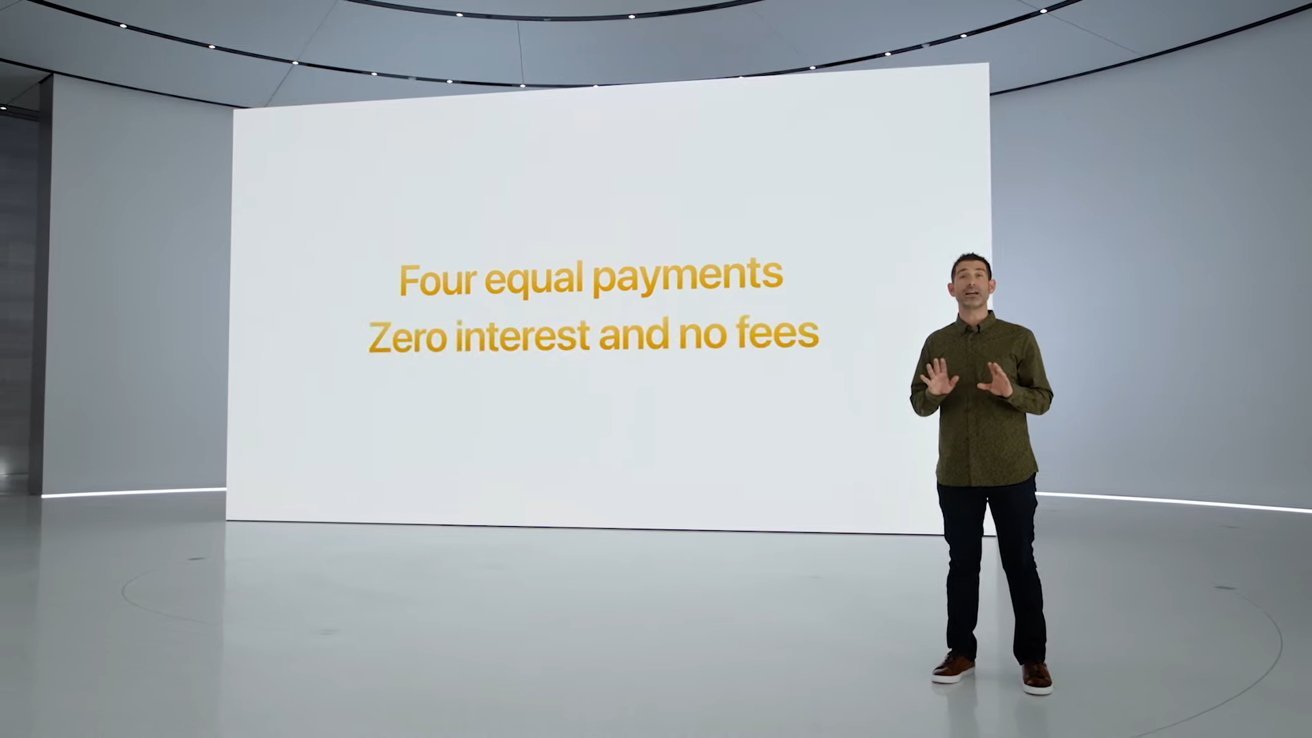Apple's handling of Apple Pay Later goes beyond just setting up a subsidiary, with the financial service said to use a customer's Apple ID and associated data to minimize the chance of fraud and losses.
Most financial firms that provide "buy now, pay later" services use third-party credit reports to judge whether it can afford to offer credit to new and existing customers. With Apple's entry into the field, the iPhone maker will be going beyond the usual checks.
For Apple Pay Later, a subsidiary has been created called Apple Financing LLC, giving Apple more direct control over the service. However, as a wholly-owned subsidiary, Apple is also able to provide information to the subsidiary that wouldn't necessarily be provided to a third-party outfit, such as its existing relationship with Goldman Sachs for Apple Card.
Along with traditional credit checking systems, Apple Pay Later will also take advantage of Apple's own platform in a number of ways, people familiar with the plan told the Wall Street Journal. This would include the use of Apple ID data to verify the user's identity, as well as for fraud prevention.
Applicants with Apple IDs that have been in good standing for a long time, and don't seem to have any indications they will commit fraud, will be more likely to be accepted for the service.
By performing checks itself using data that it directly manages, Apple has grown its confidence in becoming a lender itself, rather than deferring to a third-party firm. It is said by sources that Apple was concerned at the time of Apple Card's creation of the reputational risk of becoming a lender, and so partnered with Goldman Sachs.
A few years later, Apple is now supposedly more comfortable with the prospect, especially due to the relatively low value and short duration of the transactions it will handle. This will include a cap of $1,000 for the payment plans, though the final amount will still depend on usual credit checks.
Customers will also be required to link their debit card to the account, with payments automatically deducted from their bank account every two weeks, unless the customer opts out.
 Malcolm Owen
Malcolm Owen







-m.jpg)






 Andrew Orr
Andrew Orr

 William Gallagher
William Gallagher

 Wesley Hilliard
Wesley Hilliard







-m.jpg)




8 Comments
Logically speaking - If an individual knows the password, one million authentications will not provide anything.
I am deeply, deeply uncomfortable with Apple getting into BNPL lending. It's a murky market and it will only do Apple's brand harm.
Which means that if their new subsidiary is a government regulated company then the regulators will have access to all that information without the need of a warrant.
mikethemartian
said:
Apple is just playing its part in the big picture. This is just the start. Thats why they want to move to a subscription based iPhone pricing model too.
https://www.weforum.org/agenda/2016/11/8-predictions-for-the-world-in-2030/
https://www.globalresearch.ca/own-nothing-happy-being-human-2030/5728960